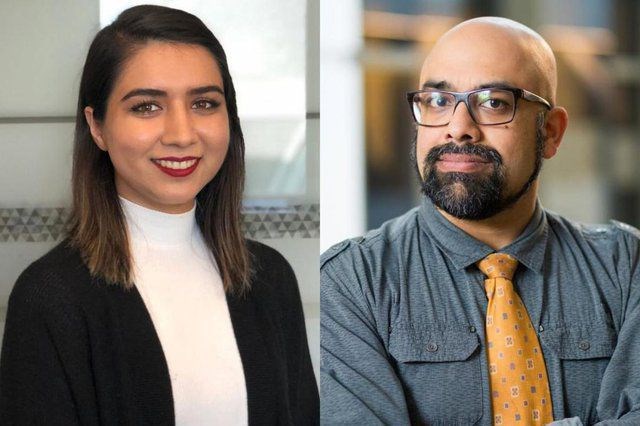Researchers at the University of Toronto are working to create an archive documenting Canadian Muslims and their lives in this country.
The Muslims in Canada Archive came about after Anver Emon was appointed director of U of T’s Institute of Islamic Studies in 2018.
He was interested in highlighting the Canadian experience — stories from the United States and Europe were easy to come by, but there wasn’t nearly as much collecting Canadian Muslim stories.
After a community consultation and fundraising, archivist Moska Rokay joined the team and for the past year, they’ve worked to get the archive up and running, collecting donations from families around Canada.
Emon and Rokay are looking to collect everything from old photos to recipe cards.
“We care about people’s shopping lists, we care about the grocery stores they went to, we care about the recipes they inherited on those little index cards … camping trips, photos, videos, 8-track tapes … you name it,” Emon said.
“We just want to understand Muslim lives in Canada,” Emon said. “We want to recognize that people just living their ordinary lives are also contributing to the history of Canada.”
In talking with the community, one of the big desires was to change the narrative and the negative perceptions people can have of Muslim communities.
“How do we change the narrative? And who gets to tell that narrative is the question, right?” Emon said.
Since this archive is being built from scratch, Rokay has been able to tailor it in unconventional ways to overcome some roadblocks.
For instance, how could families who were refugees participate, since they likely had to leave much of their personal belongings behind — something Rokay’s family has had experience with. So, she’s offered to help families like this to create a recording orally sharing their story.
It’s also important for Rokay that the families can help with labelling and describing the items, whereas sometimes that’s something archivists handle.
Much of the work so far has been getting the word out and reaching out to community members, particularly those of older generations, to try and get them to offer their records and artifacts for the team to go through.
The concept of archiving can be new to Muslim communities, Rokay said. “Archives are very Eurocentric, western entities themselves.”
A byproduct of this is that the communities may not think to contribute to more general Canadian collections and therefore aren’t highlighted there. And while some religious organizations like Christian churches keep their own records, due to this unfamiliarity with archiving, mosques haven’t.
“It became even more important that Canadian Muslim heritage was recorded somewhere,” Rokay said.
What many may not realize is that Muslim people have had a presence in Canada since 1851, when James and Agnes Love emigrated here from Scotland. Not only does the Muslims in Canada Archive aim to reshape the negative view people can have of Muslims in the present, but also in history books.
Emon said for a long time, in Canada, history has been told from a particular perspective, but now, as we start to rethink and look at things from different perspectives — Indigenous, racialized and immigrant perspectives — “the story we tell is now beginning to change,” he said.
“It’s also about humanizing the differences that make up our mosaics.”
For more information about the archive and contributing, go to the Muslims in Canada Archives website.
Angelyn Francis, Local Journalism Initiative, Toronto Star



